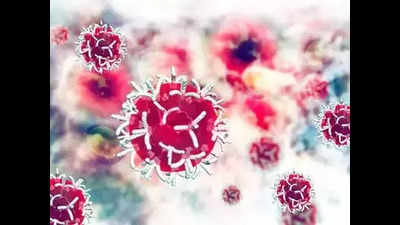
Chennai: At least two gene mutations are more common in Indian women who develop breast cancer, the Bharat Cancer Genome Atlas developed and released by IIT Madras on Monday shows. The atlas contains 960 sequenced whole exomes, representing the protein-coding portion of the genome, from 480 breast cancer patients' healthy and cancer tissue samples collected from across the country. The researchers said the atlas, which will be accessible to everyone at bcga.
iitm.ac.in, will help in early diagnosis and developing personalised treatment.

"Our sequencing found some mutations that are low in frequency in some populations, absent in others, but higher in Indians. Validation requires studying 1,000-2,000 people. We began with breast cancer due to its high incidence," said Prof S Mahalingam, head, Centre of Excellence on Cancer Genomics and Molecular Therapeutics, IIT-M.
"We can't reveal details about Indian gene mutations until we complete the validation," he said. The atlas can help develop diagnostic kits for early detection and new precision medicines for the Indian population, he added. "The atlas has mapped the genome of patients from different states including Tamil Nadu, Puducherry, Kerala, Andhra Pradesh, Orissa, and Mizoram.
These will help drug manufacturers tailor diagnostic kits or develop drugs that can improve outcomes," he said. In the West, such mapping has helped in early diagnosis, treatment and survival rates. According to the National Cancer Registry Programme, one in nine Indians are likely to develop cancer in their lifetime.
There are more than 14.6 lakh people living with cancer in India. Since 2022, the incidence has risen by 12.
8% annually. "Despite this, India remains underrepresented in global cancer genome studies. India lacks adequate genetic variant data for diagnostic kits and drug development," Mahalingam said.
IIT M launched the genome programme in 2020 in collaboration with Karkinos Healthcare, Mumbai, Chennai Breast Clinic, and Cancer Research and Relief Trust, Chennai. IIT M director V Kamakoti said artificial intelligence techniques can be used to analyse the data to provide early intervention, personalised care, and prevention. "One treatment for all does not work in India because the cause of cancer, how it spreads, and the change in DNA varies with region," he said.
"The atlas was developed keeping this in mind. By making the data accessible, we can develop suitable drugs for people in our country and provide precision medicine. The cure may be faster, and cancer deaths can be reduced.
" The researchers plan to develop similar sequencing for cancers of the colorectum, pancreas, oral, blood, and bone marrow (leukemia)..















